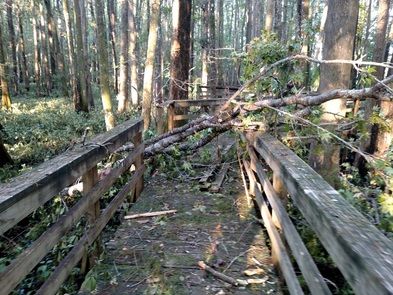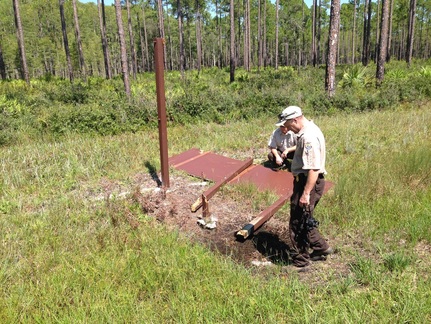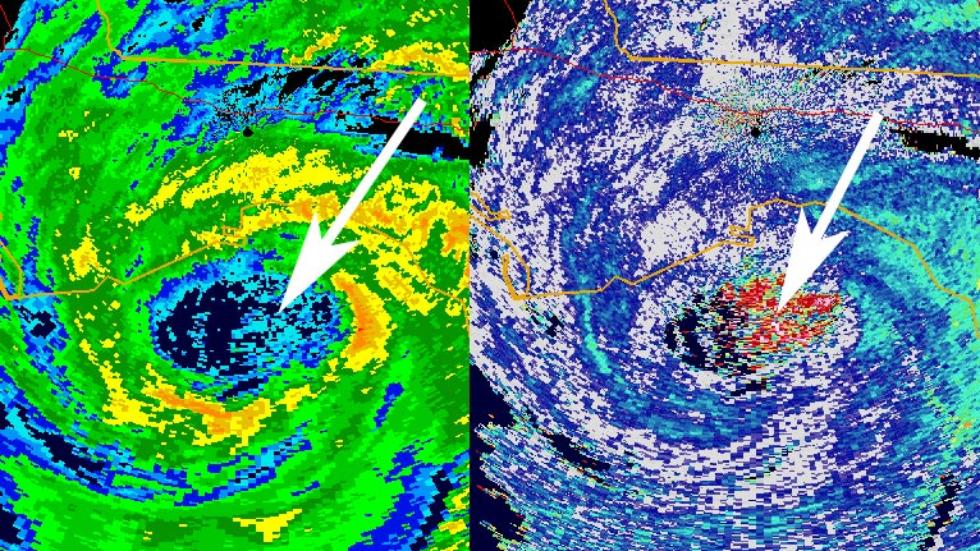|
On September 1, Hurricane Hermine, a Category 1 storm came onshore over St. Marks National Wildlife Refuge, near Tallahassee, Florida. The Cedar Keys and Lower Suwannee National Wildlife Refuges were on the southeast side of the storm, where a nearly 10 foot storm surge and winds gusting up to 75 mph brought down trees, tore numerous docks loose from their moorings, and brought water levels not seen in decades into the numerous small coastal communities along Florida’s Big Bend region. Refuge staff were not only on standby to help out nearby communities during and after the storm, but they quickly went to work on the Refuge afterwards to get storm damage cleaned up. I’d like to give all the staff and Refuge volunteers, especially Ron Black a huge shout out for their tireless work. Although natural resources and wildlife protection are part of why are Refuges exist, it is the human resources that keep the Refuges up and running, especially in times like this. I’ve been reflecting a lot on the intersection of humans and the environment in the aftermath of this storm. While it’s often very easy to see the toll storms take on human construction, it’s a lot harder to see or know what toll that this takes on wildlife. Wildlife that can move may make for higher ground. On Cedar Key, where I live, I saw several salt marsh snakes in places where they wouldn’t normally be, presumably brought to these spots by the tidal surge. Often they were trying to move in the direction back towards water. During the storm, radar captured a flock of seabirds, presumably caught and flying in the eye of the hurricane, as it moved onshore.
It may also be harder to measure the benefit that Refuges specifically provide to wildlife in storms since they can’t talk to us about it, but what is clearer and clearer is the enormous benefit that conservation lands, particularly coastal wetlands provide to humans in such events. At a conference I attended in Tampa on Coastal Resiliency about 10 days after the storm, the watch phrase was “Armor, Adapt, Abandon” – an alliterative way to quickly sum up the humans will be grappling with as we face effects from climate change in the coming decades. In the United States, all eyes will be on Florida as we grapple with how best to handle sea level rise, models for which struggle to try to predict the unpredictable. ‘Adaptation’ can mean a wide variety of approaches including elevating buildings or roads, or by conserving or recreating wetland habitats such as mangroves and saltmarsh habitats. Scientists are studying these natural ecosystems to better understand how they might protect against strong storm. While the precise protective effect may vary by ecosystem and storm patterns, there seems to be a general pattern of agreement that wetland ecosystems can help slow and mitigate storm surge as well as serve to hold carbon, a critical component of climate change and sea level rise. Now and well into the future, protecting existing conservation land and adding other land will not only help provide critical habitat for wildlife, it will help ensure numerous protections and benefits for humans. As the weather cools off here in North Florida, please take to a boat or get your walking shoes on and head out to enjoy the Cedar Keys and Lower Suwannee National Wildlife Refuges. Bring a friend and introduce them to your favorite spot. These Refuges are precious treasures for all living beings.
0 Comments
Leave a Reply. |
Archives
June 2024
|

Friends of the Lower Suwannee & Cedar Keys National Wildlife Refuges
P. O. Box 532 Cedar Key, FL 32625 [email protected] We are a 501(c)(3) nonprofit organization. |
|


